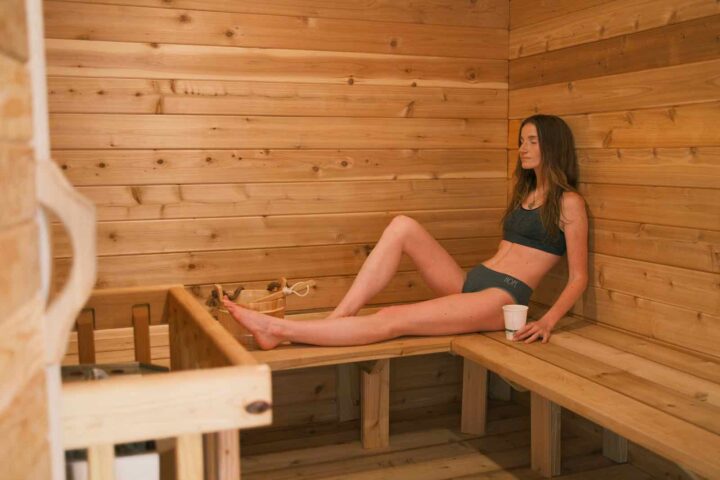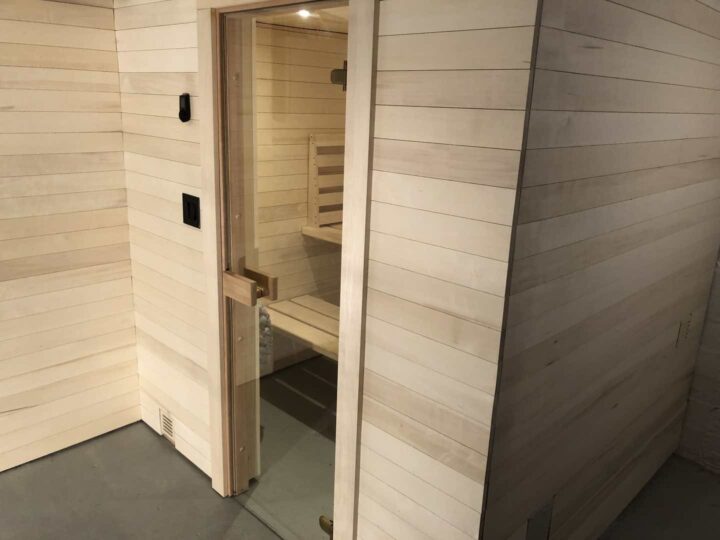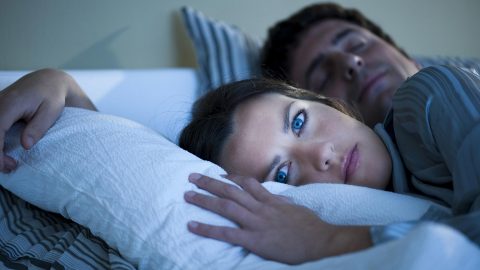
Scientific evidence suggests that regular sauna use can improve sleep by increasing deep sleep cycles, boosting melatonin production, and decreasing stress levels.
I built a sauna in my basement last year and almost immediately noticed that I slept better and longer when I started taking a sauna before bed. I wasn’t aware this was considered one of the benefits of sauna use, but the improvement was obvious to me. Most of us recognize the importance of a good night’s sleep for our health and well-being, so I looked into the science of taking a sauna before bed and its affect on sleep. Sure enough, scentific research reveals a relationship between heat exposure and better sleep. There are a few specific mechanisms at work when understanding how saunas improve sleep.
Sauna Significantly Increases Deep Sleep
Scientific studies indicate that regular sauna bathing can positively impact sleep patterns. Sleep is understood to have three different stages, identified through brain-wave patterns, eye movements, and muscle activity. Non-rapid eye movement (NREM) stage 3 sleep, better known as “deep sleep” or slow-wave sleep is an essential stage for restorative sleep. This stage is believed to be important for physical restoration and cognitive function. Research indicates that heat therapy such as regular sauna use is associated with an increase in deep sleep stages, highlighting its potential as a valuable sleep aid.
Sauna Can Increase Melatonin
Sauna use has been associated with an increase in melatonin production. Melatonin is a hormone produced by the pineal gland in the brain, and it plays a crucial role in regulating the sleep-wake cycle. Several studies have explored the impact of sauna bathing on melatonin levels, suggesting a potential link between sauna use and the modulation of this sleep-regulating hormone.
The body’s circadian rhythms play a vital role in regulating sleep-wake cycles. Sauna use has been linked to the modulation of circadian rhythms, influencing the release of melatonin. A study in Chronobiology International (Leppäluoto et al., 2005), titled “Endocrine effects of repeated sauna bathing,” investigated the hormonal changes induced by sauna bathing. The study observed increased melatonin production following sauna sessions, suggesting a potential mechanism by which saunas contribute to improved sleep onset and maintenance.
Stress Reduction from Sauna Use Before Bed
We all experience stress in day-to-day life. Luckily, the sauna experience is synonymous with relaxation, and its impact on stress reduction is well-documented. Stress and anxiety are significant contributors to sleep disturbances. A study published in the Journal of Applied Physiology (Hannuksela & Ellahham, 2001) highlighted the role of sauna bathing in reducing cortisol levels, the hormone associated with stress. By promoting a state of relaxation, saunas can alleviate stress and, consequently, improve sleep quality.

Temperature Regulation and Sleep
Sauna use involves exposing the body to high temperatures followed by a cooling-off period. This process not only induces overall relaxation, but also contributes to a drop in core body temperature. The subsequent cooling phase aligns with the natural decline in temperature that occurs before sleep, potentially promoting better sleep quality.
Do you have to sauna before bed to get sleep benefits?
Studies I read simply research “regular” sauna bathing or heat therapy – measured as some combination of temperature, duration and frequency. It appears that health benefits are especially related to frequency, so more frequent use seems to increase the benefits. It’s not necessary to sauna immediately before bedtime to reap the benefits. In fact, most recommendations are to sauna at least 1-3 hours prior to bedtime to allow your body to completely cool down after heat exposure. I typically sauna in the late afternoon, hours before going to sleep. The key is to use the sauna regularly, at whatever time of day works best for you. While there are no guarantees that using the sauna will cure your insomnia, my personal experience is that my sleep has genuinely improved since making the sauna part of my regular routine.


